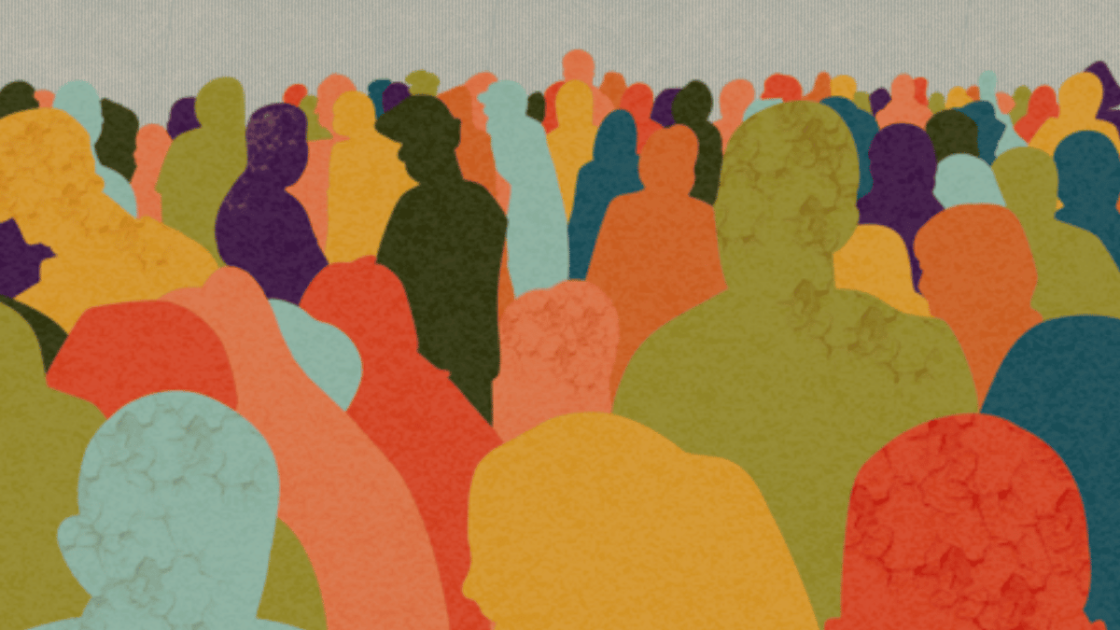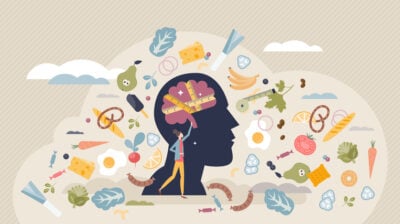What is an eating disorder?
Eating disorders are complex mental health conditions that can affect people of any gender, age, sexual orientation, body size or ethnicity.

Eating disorders are mental health conditions that negatively impact a person’s relationship with food and eating, as well as many other aspects of life. They can have a significant impact on your physical, psychological, social and emotional well-being.
There is no one cause of an eating disorder; there are many factors, both internal and external to a person, that may play a role. Having low self-esteem and negative thoughts about yourself can be risk factors, and experiencing an eating disorder can in turn, increase these difficult feelings and thoughts.
Eating disorders are complex mental health conditions, so it can be scary to think that you or someone you care about might have an eating disorder. However, eating disorders are treatable conditions where full recovery is possible. With appropriate help and support, people can and do recover from eating disorders. Just as no two eating disorders are the same, treatment and recovery is also very individual to each person.
In this article, you will find answers to the following questions:
What are eating disorders?
How is disordered eating different from an eating disorder?
What are the common types of eating disorders?
How can I recognise the signs and symptoms of eating disorders?
For more information on the types of services and support available, visit our article on how to get help for an eating disorder. You can also read more about who is more at risk of developing an eating disorder and why in our article on why people develop eating disorders.
What are eating disorders?
Eating disorders are complex mental health conditions that impact your thoughts, feelings and behaviours. They can have serious and potentially life-threatening consequences. An eating disorder can show up in different ways, for different people, and may include behaviours such as:
- Strictly limiting how much food you eat to lose weight
- Eating large amounts of food all at once, within a short space of time and with a sense of loss of control
- Being caught in a cycle of overeating and restricting food
- Trying to get rid of food through behaviours like hiding food, purging (vomiting on purpose, using laxatives)
- Trying to burn off calories by exercising too much, even when unwell or injured
- Avoiding socialising, spending more time alone and becoming isolated
An eating disorder can also include thoughts and feelings, such as:
- A harsh internal critical voice that sets lots of rules about what you ‘should’ and ‘should not’ be doing
- Inflexible thinking – Seeing things as ‘good’ ‘bad’ ‘right’ ‘wrong’, not being able to see the middle ground
- An intense fear of weight gain and a preoccupation with diets, what you are eating, and how you are exercising
There can be an overwhelming amount of internal distress that a person is experiencing at any one time. This is not always obvious to those around them, which makes it difficult for both the person themselves to understand and for those around them to understand how to support them.
For people with eating disorders, these thoughts and behaviours can feel out of their control or compulsive. “Compulsive” means feeling forced to act a certain way, even when you don’t want to or know it’s harmful. Many people with eating disorders feel ashamed of their eating habits and might hide their eating behaviours and emotional distress.
Even though some people know their actions are harmful, they may struggle to seek help because their behaviours help them cope with difficult emotions or feel numb. A coping mechanism is a pattern of behaviour or thought that a person uses to help them deal with stress or emotional pain.
How is disordered eating different from an eating disorder?
Many people engage in disordered eating to a certain extent. Eating habits can change from day to day and thoughts and feelings can influence how people feed themselves. A person moves towards eating disorder territory when their thoughts and behaviours around food become compulsive and they feel they no longer have a choice in whether or not they engage in the behaviours. They are also more likely to have an eating disorder when the frequency and intensity of their problematic eating patterns and behaviours increase.
A person may be developing an eating disorder when they feel they must frequently engage in eating behaviours, such as:
- Restricting food intake
- Bingeing (i.e., eating large quantities of food in a short space of time and with a sense of loss of control)
- Compensating for their eating by purging or over-exercising
If you feel anxious or scared about food and eating, or spend a lot of time worrying about meals or gaining weight, it could be a sign that you need support for an eating disorder. Disordered eating can become more problematic gradually over time, and getting support earlier can help with recovery. If your eating habits are beginning to worry you, talking to your GP or calling the Bodywhys helpline can really help.
Common eating disorders
There are several types of eating disorders, each with its own patterns of behaviour. Understanding these types can help you recognise warning signs and find the right support. However, it’s important to remember that everyone’s experience of an eating disorder is unique, and some people may show behaviours from more than one type at the same time.
- Anorexia Nervosa
- Bulimia Nervosa
- Binge Eating Disorder (BED)
- Other specified feeding or eating disorder (OSFED)
- Avoidant restrictive food intake disorder (ARFID)
How can I recognise the signs and symptoms of eating disorders?
Eating disorders have symptoms that affect how people think, feel and behave. Different eating disorders can affect people in very different ways, leading to unique potential signs and symptoms. On top of this, the way the same eating disorder manifests can vary a lot from person to person. People can also experience a combination of disordered eating symptoms that don’t align with any one eating disorder diagnosis. Below is a list of signs and symptoms of eating disorders. This list doesn’t capture all experiences associated with eating disorders and each individual’s experience with an eating disorder is unique.
Behavioural symptoms of eating disorders
- Missing meals and limiting what you eat and how often you eat
- Weighing yourself all the time
- Not being truthful about when you’ve eaten and your weight
- Exercising too much
- Engaging in eating binges where you eat large amounts of food in a short period of time and feel like you can’t control what you’re eating
- Purging food by vomiting or misusing medications such as laxatives or diuretics (i.e., medications that cause you to urinate)
- Obsessively thinking about food and how much you’ve eaten
- Avoiding meals with other people or gatherings where food is the focus
- Secretly getting rid of food or eating food in secret
- Having strict routines and habits around food
- Withdrawing from friends and family and from activities, especially ones that revolve around food, to hide your eating habits
- Compulsively checking your body in the mirror or your reflection in a window etc.
Psychological symptoms of eating disorders
- Low self-esteem
- Feeling irritable and having mood swings
- Struggling with your body image and believing your body looks different to how others might see it
- Feeling depressed
- Having obsessive and/or compulsive thoughts about food
- Feeling like you can’t control what you eat, how much you eat, or when to stop eating
- Experiencing mood swings
- Having an intense fear of gaining weight
- Not recognising the seriousness of weight loss (especially when already at a healthy weight, underweight, or when weight is lost within a short period of time)
Physical impact of eating disorders
As eating disorders progress, they tend to have an impact on your physical health and how your body is functioning. Experiencing physical complications can be frightening, but many of these issues can be reversed and improved with appropriate treatment. Some of the complications that can arise with eating disorders include:
- Feeling tired
- Feeling cold
- Feeling dizzy
- Changes in body weight
- Poor sleep
- If you get periods, they might change, become irregular or stop entirely
- Stomach pain and digestive issues
- Poor wound healing
- Frequent injuries and illness
- Brittle bones, potentially leading to osteoporosis
- Difficulties concentrating
- Heart palpitations
- Chest pain
- Muscle weakness
If you want to access support and specialised services for people with eating disorders, visit our article on how to get help for an eating disorder. You can also find out more information on how to support a friend who is recovering from an eating disorder.
Feeling overwhelmed and want to talk to someone?
- Get anonymous support 24/7 with our text message support service
- Connect with a trained volunteer who will listen to you, and help you to move forward feeling better
- Whatsapp us now or free-text SPUNOUT to 50808 to begin.
- Find out more about our text message support service
If you are a customer of the 48 or An Post network or cannot get through using the ‘50808’ short code please text HELLO to 086 1800 280 (standard message rates may apply). Some smaller networks do not support short codes like ‘50808’.






